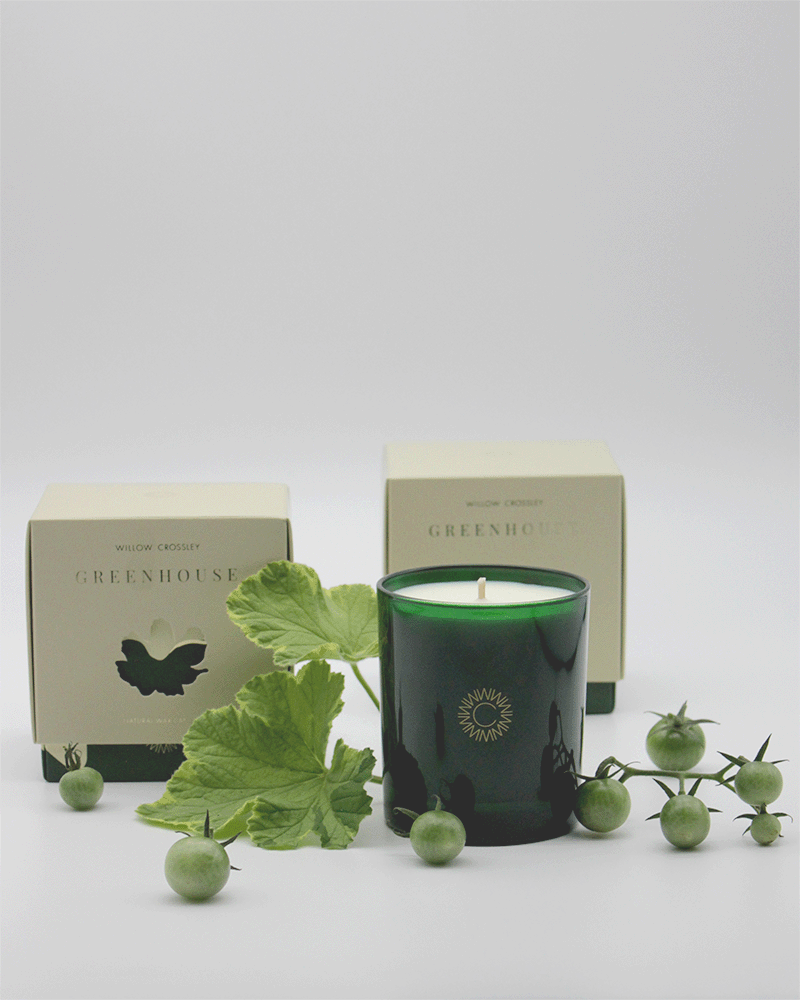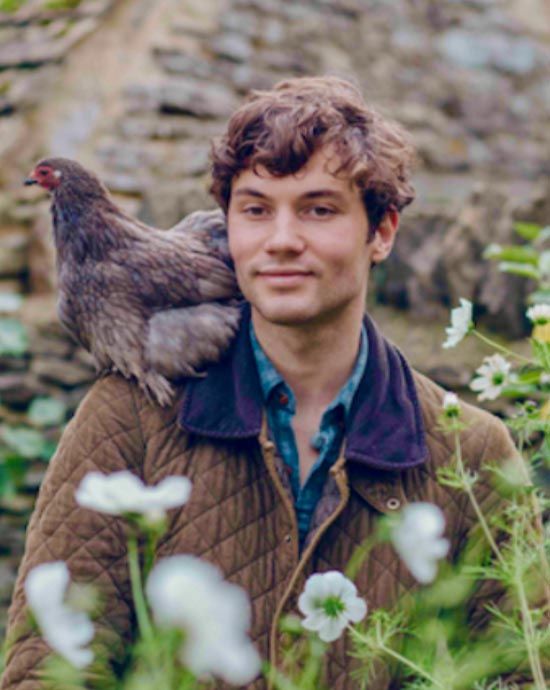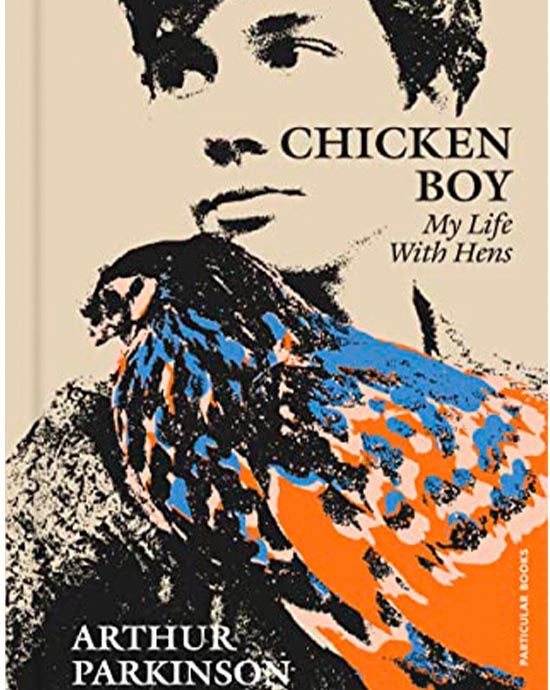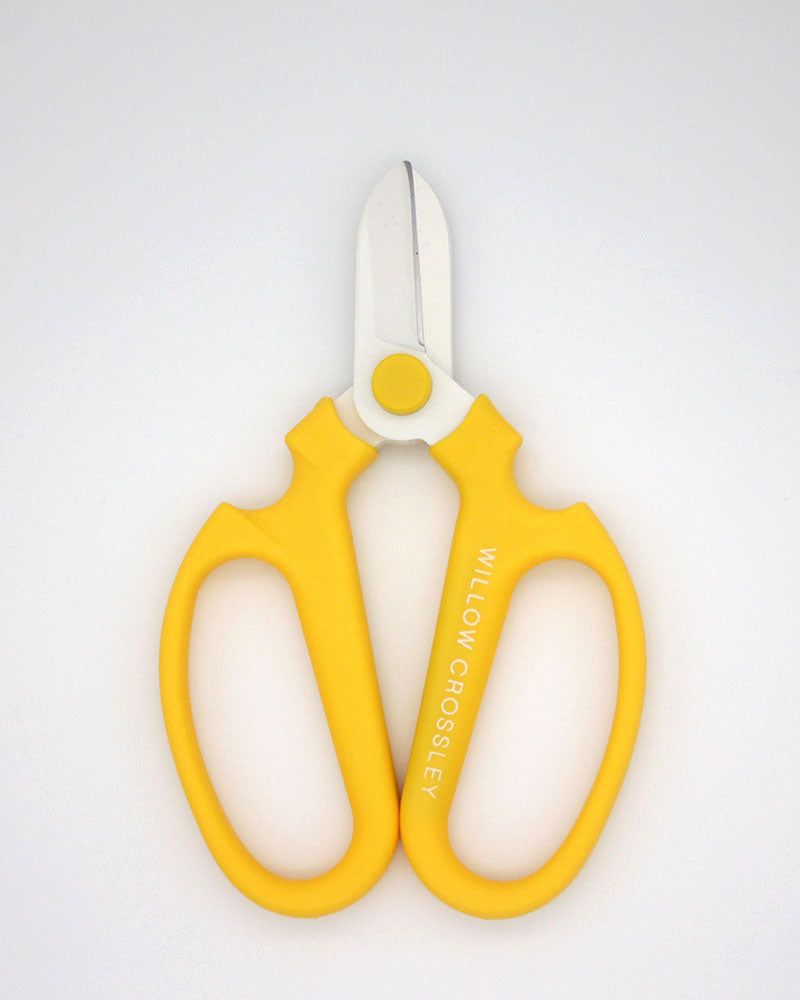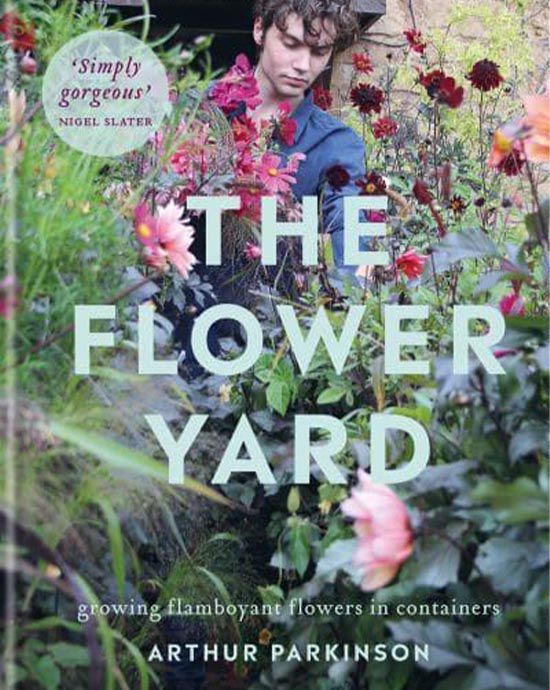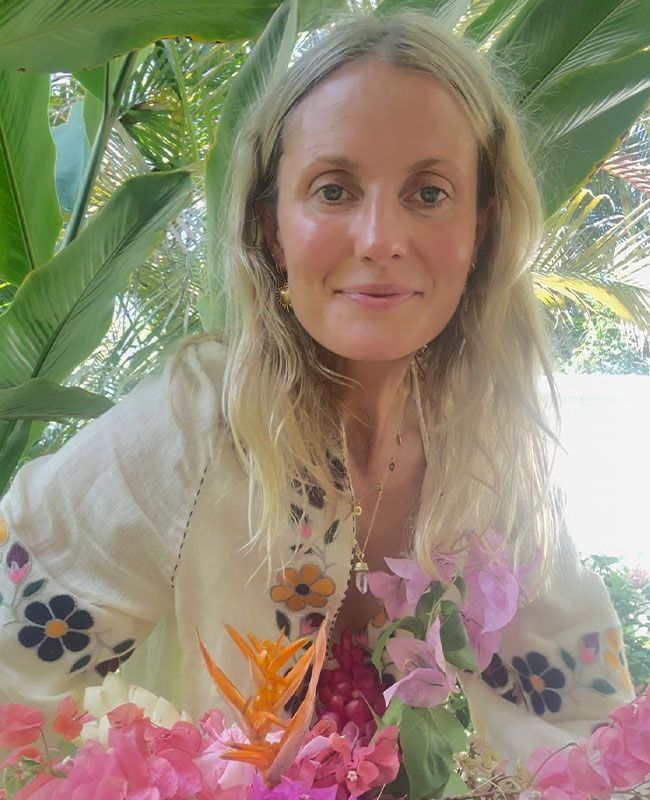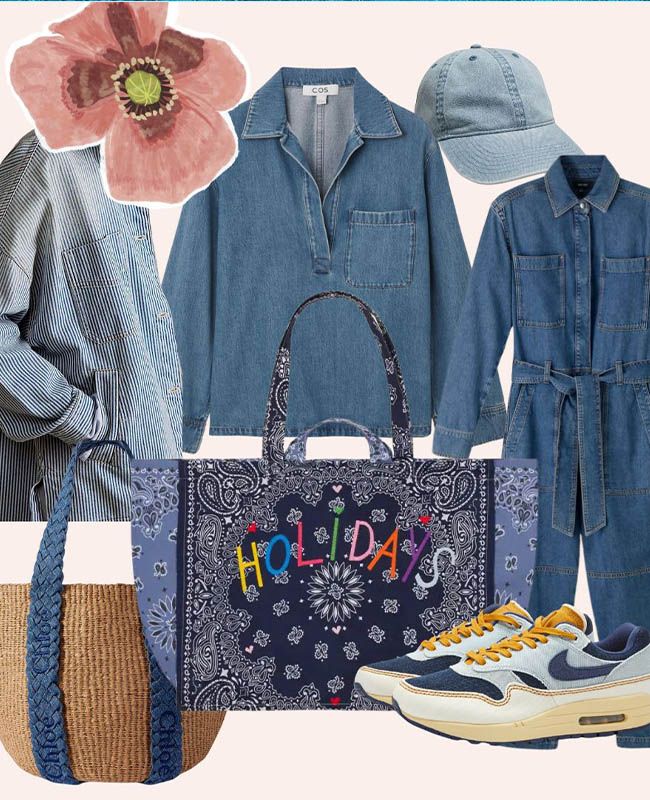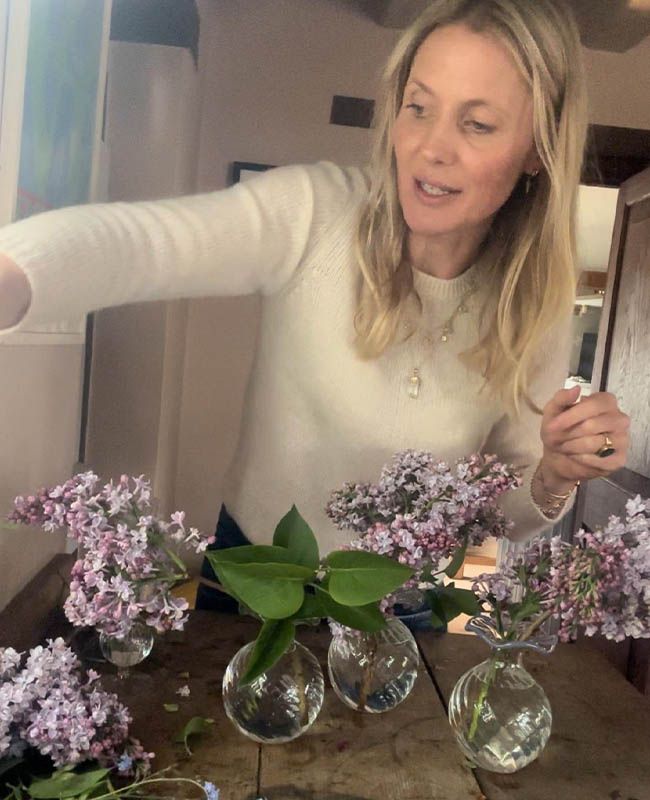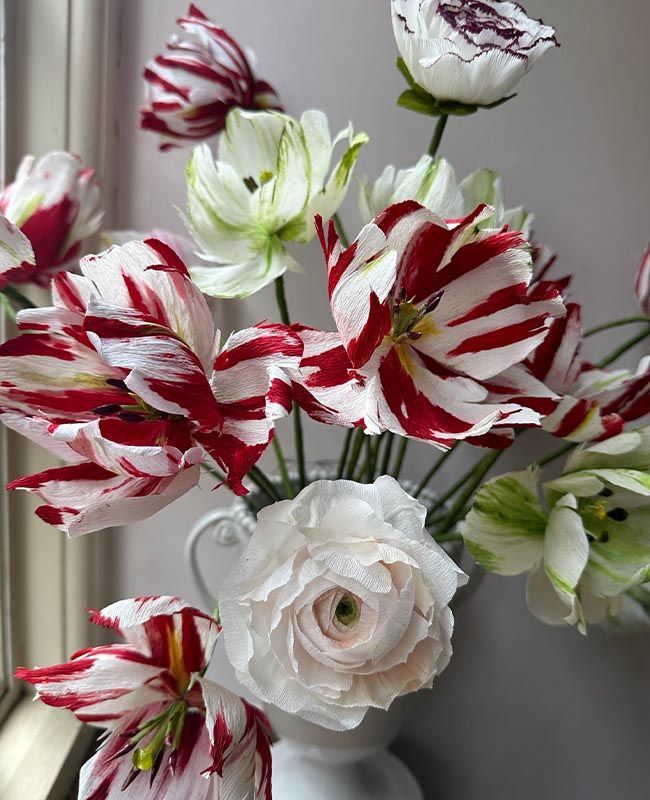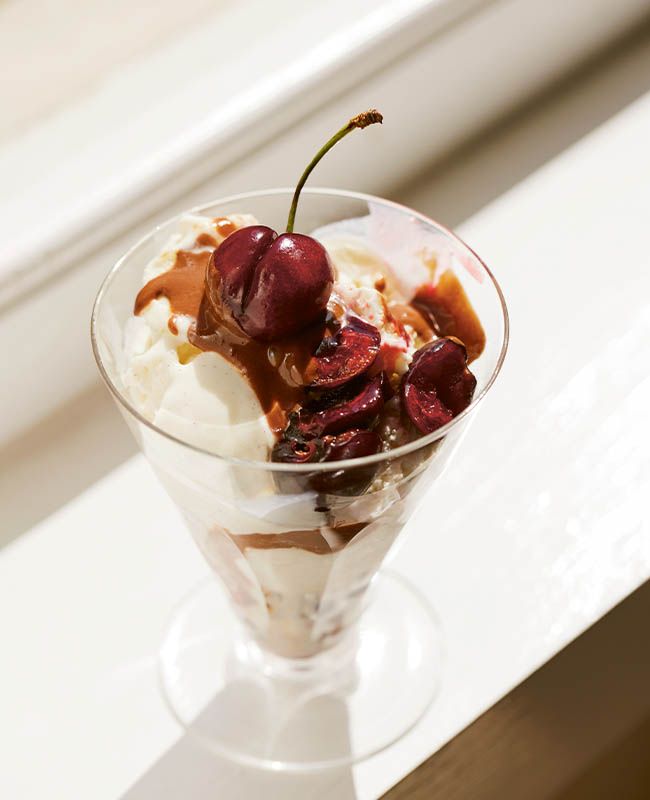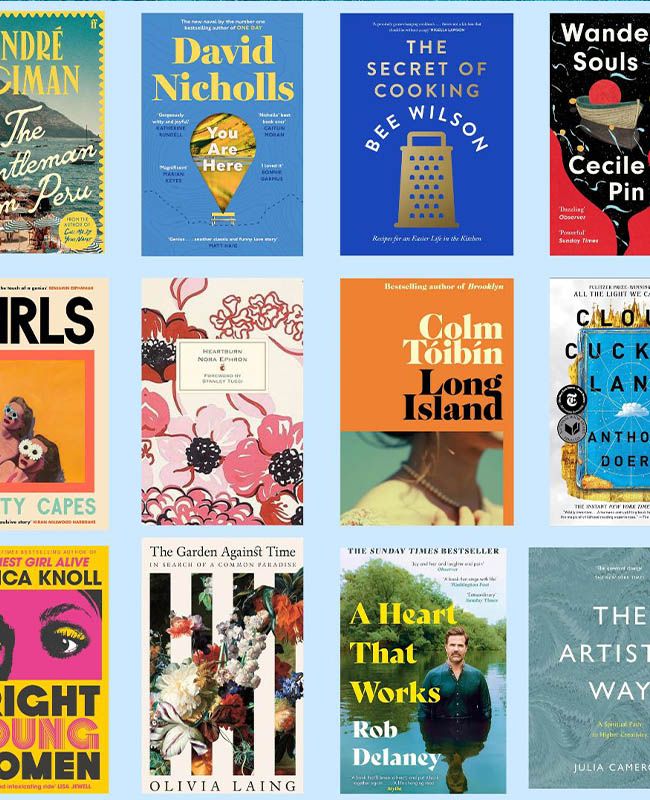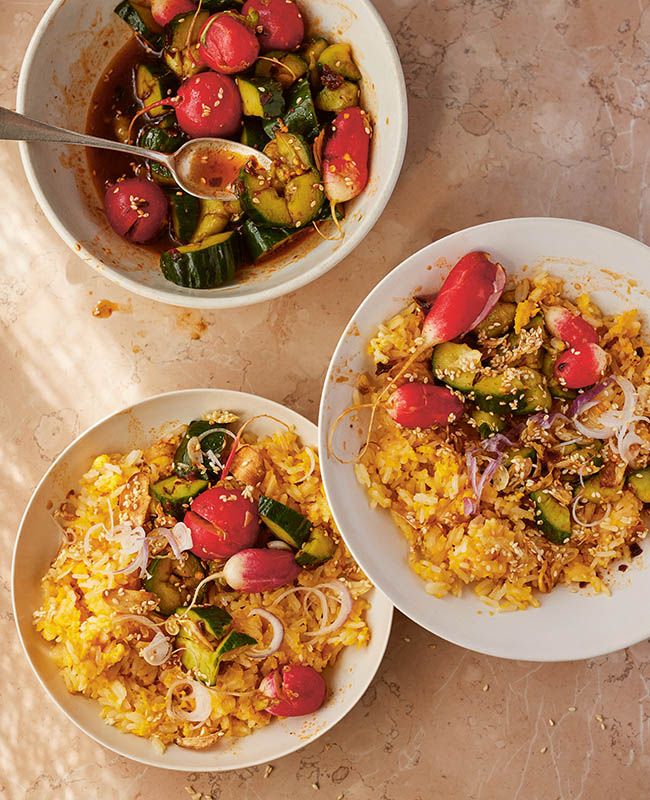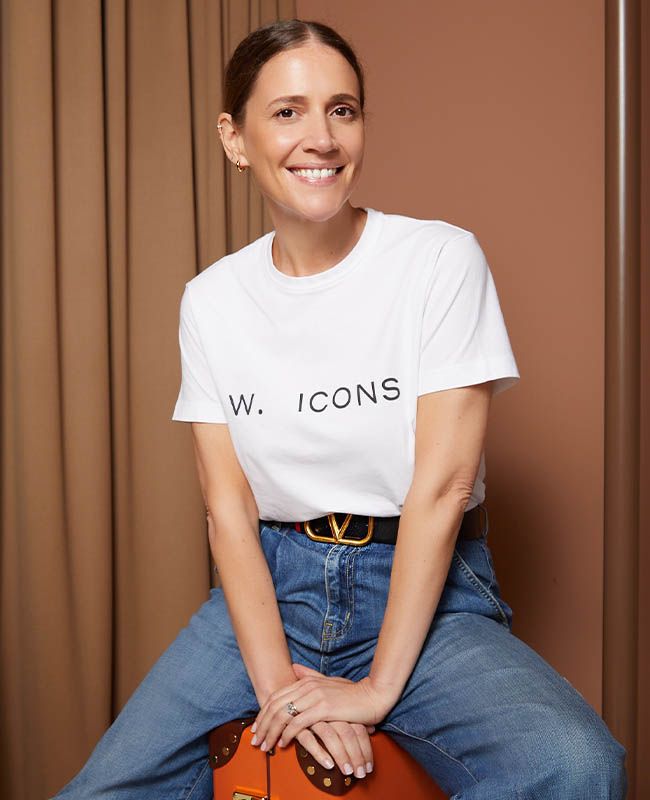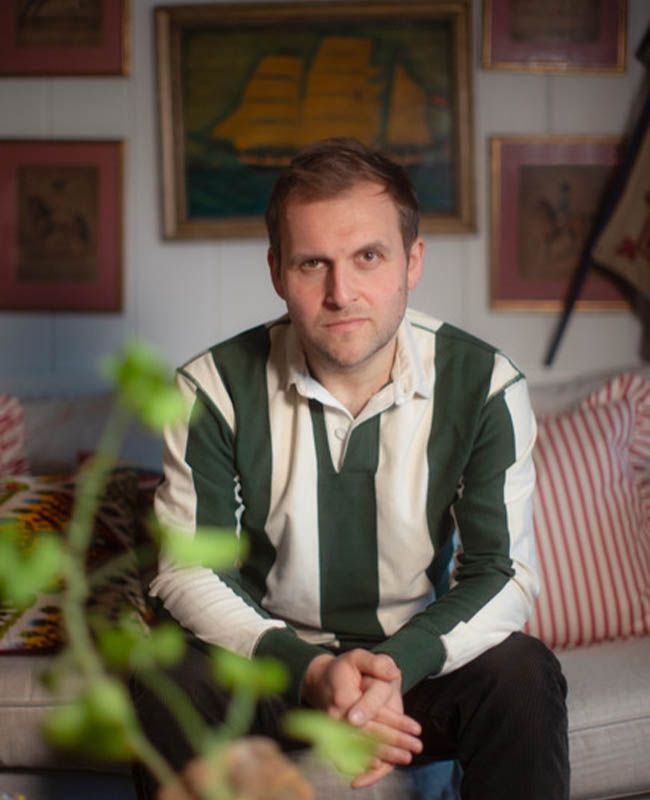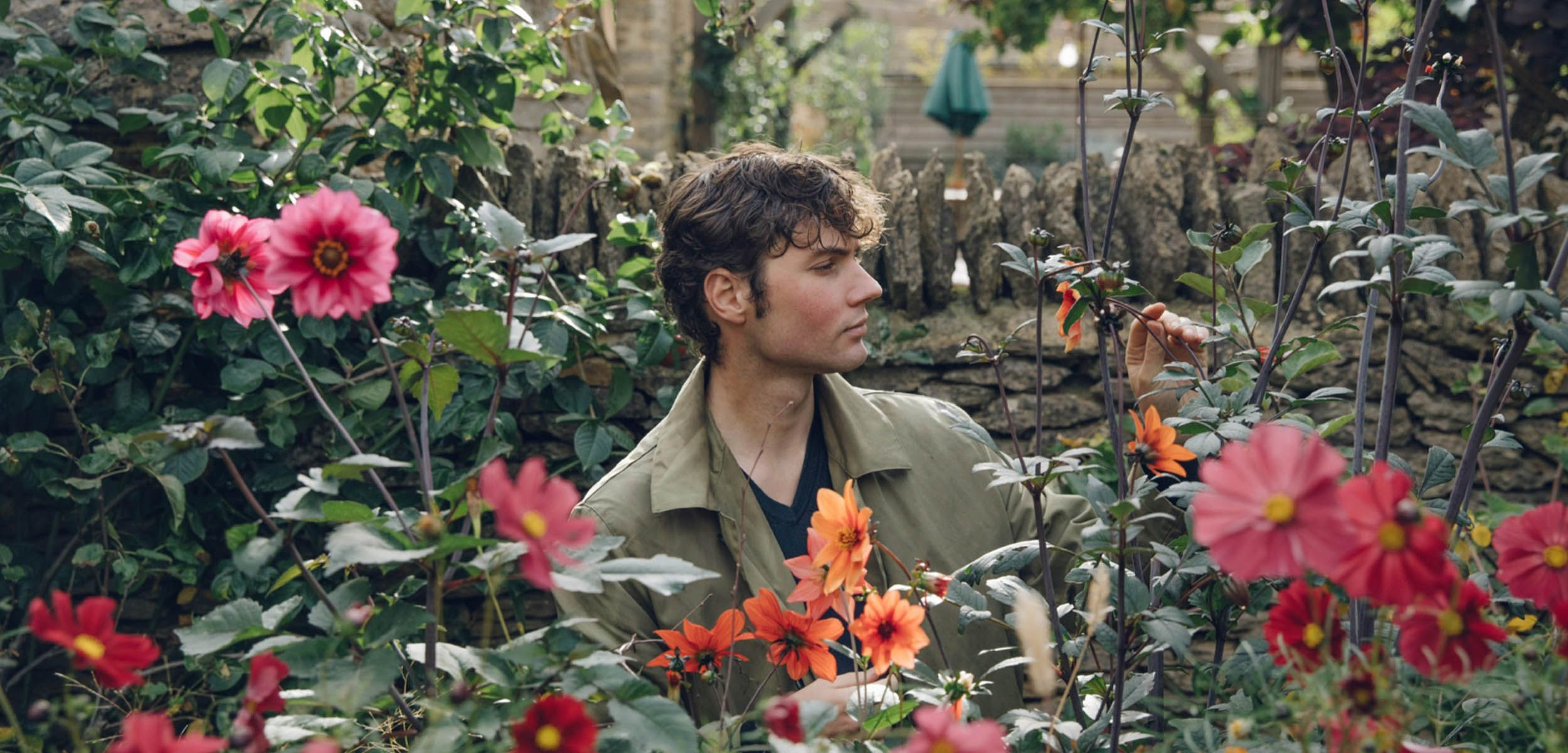
INTERVIEWS
Arthur Parkinson, happiness with hens
Happiest With Hens...
"I am a toddler the first time I meet a chicken", recalls Arthur in his latest book, Chicken Boy - My Life WIth Hens. "The hen has tiny eyelashes, a strawberry-jam face and a voice of purring clucks. I sense a happy spirit of inquisitiveness and smile in fascination. From that moment on, I will always love the company of chickens. I have found my tribe."
The Sunday Times bestselling author of The Flower Yard, Arthur Parkinson may well be known for his love of flowers and gardens, bees and butterflies (and Absolutely Fabulous memes), but behind the author and unlikely Instagram influencer is a dedicated and knowledgeable hen keeper, a passionate animal rights activist and an unaffected family man with an authentic appeal. At only 30 years of age, there is a lived wisdom about Arthur and a timeless charm to his mission for living simply, beautifully and respectfully with nature.
Part memoir/part how-to for rearing hens, Arthur's new book reveals an encyclopaedic knowledge of his feathery friends as well as his duty to care for all living things including family, flowers and flocks of hens. Growing up in the ex-mining town of Hucknall, Arthur discovered peace and fulfilment from caring for chickens and has never forgotten his roots - and the simple pleasures that support physical and mental health. A lyrical writer and captivating storyteller, Chicken Boy also uncovers Arthur's ability to illustrate with detailed watercolours of his favourite broods.
Here we chat with Arthur about his beloved brood and love of gardening; his advice on keeping hens while keeping your garden intact; how he unwinds and the honest realities of managing mental health; and the women he looks up to - from his grandmothers to his earliest pen pal, the Duchess of Devonshire...
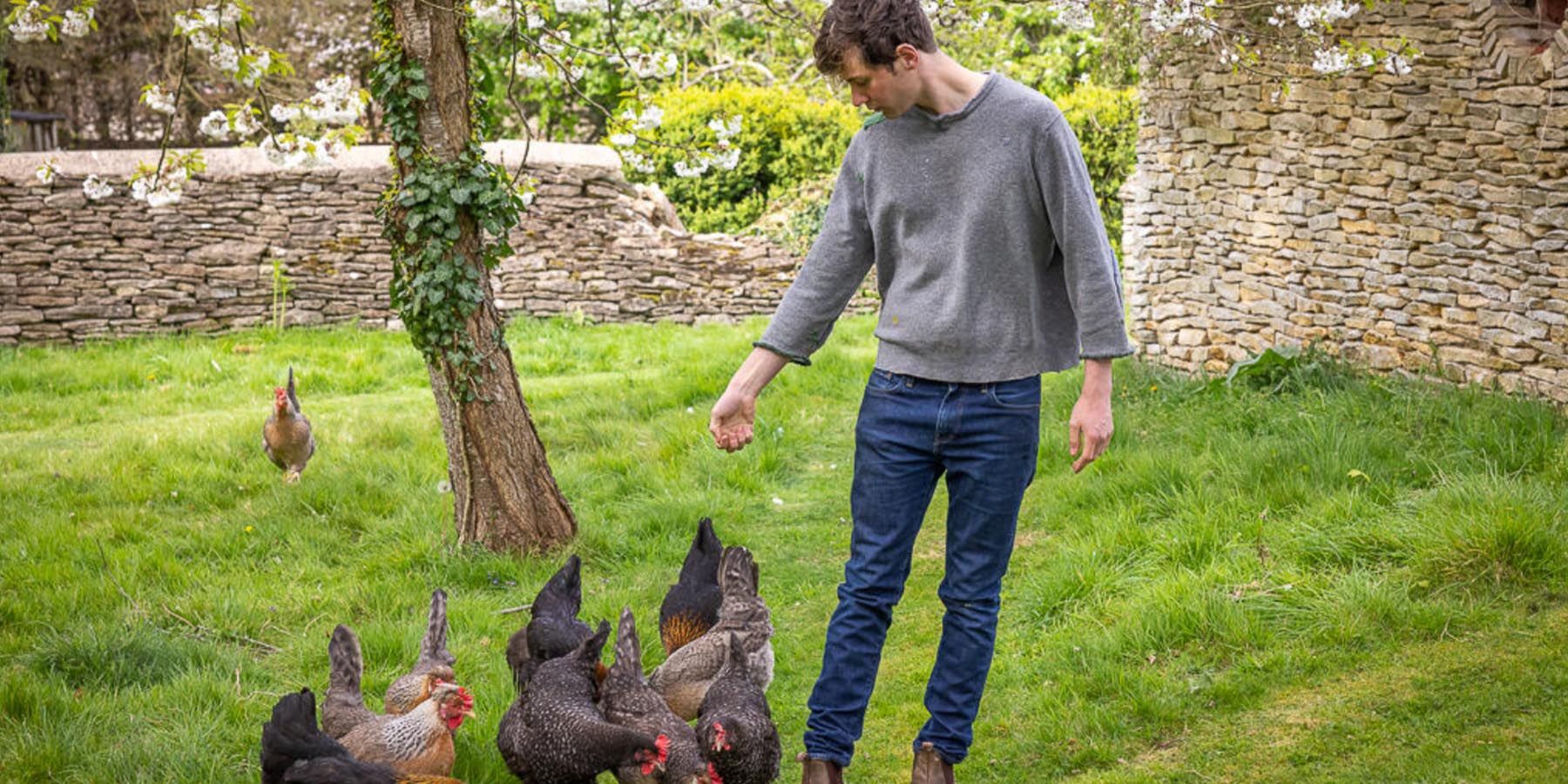
Arthurs and his girls. Photography credit: Jonathan Buckley
You appear to have both a passion and encyclopaedic knowledge of chickens! For someone who admits school wasn’t your thing, how have you developed your writing and quest to educate others on the joy of raising chickens, gardening, conservation and animal welfare?
I carry a lot of clips and voices of people that make me smile in my head and always have done. Despite having to come out with character phrases that baffle people, I like to write as I talk and see things. I couldn’t tell the time or tie my shoelaces aged seven. Looking back, I would probably have today been diagnosed with something to explain my being one of the ‘slow’ ones. I learnt to read eventually through parrot fashioning a video about chicken keeping called Poultry at Home that was loaned from the library. It just clicked one day. I had no interest really in storybooks, I wanted to be able to read endless titles that began with ‘The Practical Guide to’ almost always about something that possessed feathers. I really believe in reading up before you either buy chickens or sow a packet of seeds, if you don’t develop a good understanding of something alive then its chances of thriving well are pretty slim, you have to learn to read animal behaviour. Letting a seed tray of seeds die is one thing, having neglected livestock though cannot be excused, it happens far too much.
The illustrations of chickens are a particular highlight of Chicken Boy and reveal yet another creative talent (along with your photography which we also know and love from your instagram). When and how did you learn to draw? Is there more to come?
I started drawing when I was little - always of hens and birds but it’s only lately I’ve started again and I love drawing the different breeds of chickens. I choose not to make their beaks and claws draw the eye. Instead, I focus on giving them a feeling of character through their body shapes, and feather details and their eyes have to give a sense of feeling too, even though they are little specs. I want to get better and draw more and more. There will be more to come, I hope, of anything I find beautiful really.
Your unlikely friendship with the Duchess of Devonshire was forged through your shared passion for hens. What impact did she have on you at an early age?
She worked so hard to make Chatsworth what is now - the blueprint of both a modern stately home and farm shop/ open farm that Chatsworth is renowned for today. Both she and her husband Andrew as the eleventh Duke and Duchess of Devonshire really nailed how to do what so many places have done now in turning a home into a place that visitors truly love - through giving them the best experience in a day out it - from beautiful loo’s tiled wonderfully to postcards, they captured a moment in British culture where the stately home would have gone either extinct as we know it or would be sold off to soulless places like museums.
When I wrote the first letter addressed to the Duchess of Devonshire I had no idea of who she really was, Debo was just the lady who kept all these chickens at a place that luckily my Grandmar Sheila and Grandad Ted loved and so would take us on a day out to. We were so lucky to know the countryside from a young age despite living in a town.
I’d love to direct a Debo biopic that focused on her role as Duchess making the farmyard and what Chatsworth has become today, I’d cast Holliday Grainger to play Debo, it would involve a lot of farmyard extras, from a
scene of milking a goat in a 1st class train carriage to having a buff Cochin cockerel on a lead in Elizabeth Street, London meeting the then Prince Charles. It would be a very stylish and beautiful thing if done well.
What has been a highlight so far in your career?
I did a Nowness film that was directed by Toby Amies who was incredible to work with and the film was me as my most authentic self because everything was given time, there was no script, we just talked all day as we filmed it.
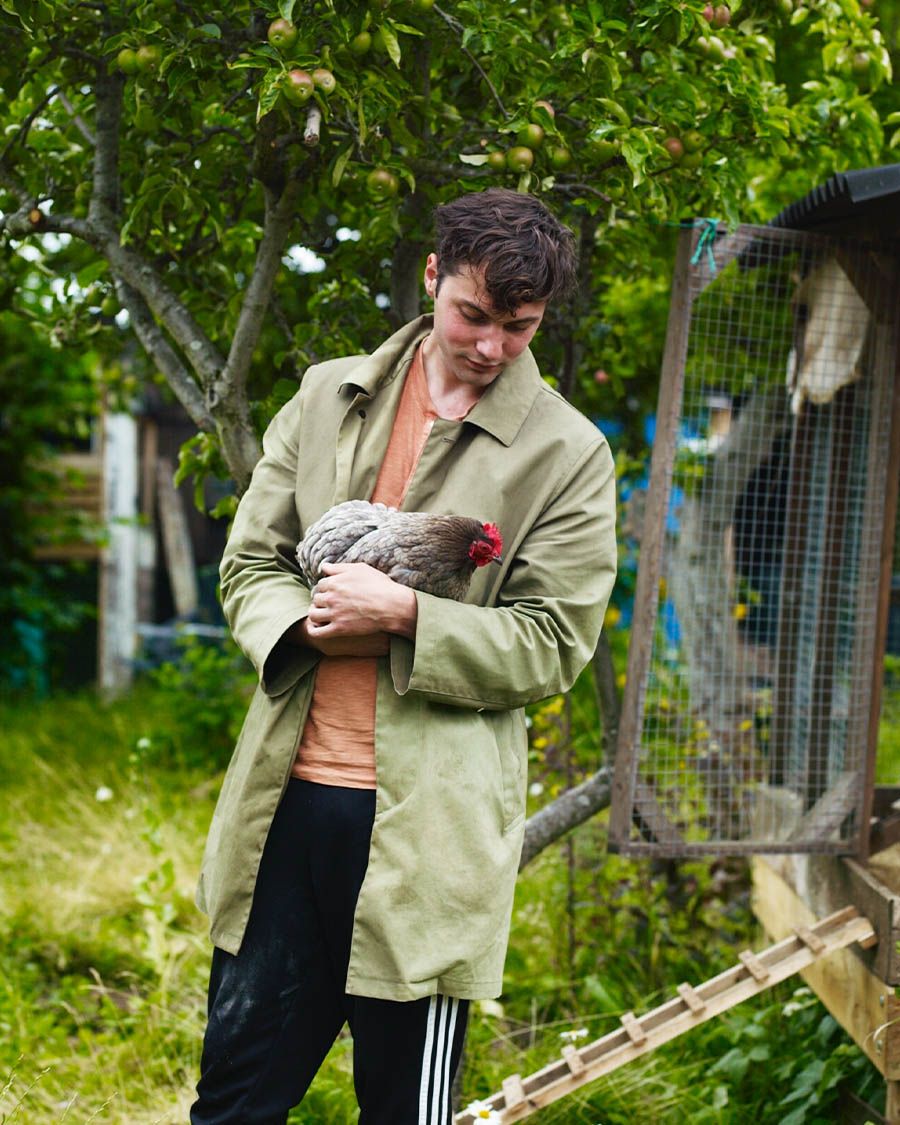
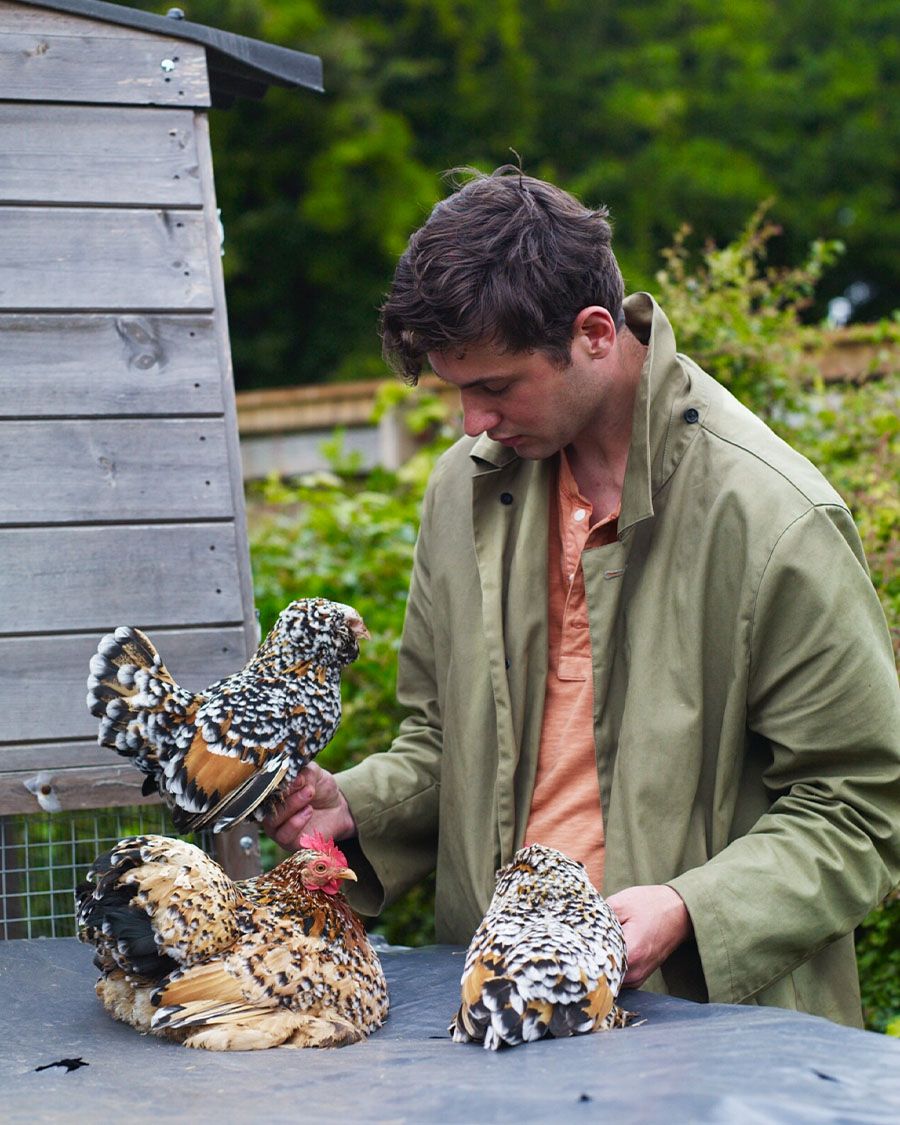
Chicken Boy. Photography credit: Andrew Montgomery.
My favourite thing to be doing is sitting with my hens and picking flowers for bud vases, not arranging but plonking them into vases singularly en masse. It is so easy and they look happy, keeping their individuality not being crammed with others as they often are in an arrangement.
We love your Create Academy course, ‘Grow a Spectacular Garden in Pots’. What are your top flowers to plant in containers and where do you buy them?
My entire attitude to gardening has changed as I want to step into the garden and not feel that the whole thing needs to be restocked. I fell into that trap of over-grooming and worrying about the garden like it had to be like a magazine, it became a stress and I lost the love of what gardening is. The best gardening is when you just step outside and find yourself doing it without any planned thought. You get that longed-for Beatrix Potter cottage garden romance only when you step back a bit which is good!
With hotter summers herbs and perennials are the thing for me now more than ever in the name of mindfulness, it’s nice to buy a plant you know you’ll have for a few years rather than just a season. A few large pots treated as annual fireworks I’ll anyways enjoy the planning of though and I love growing things from seed.
For ease and connecting people to the garden and house, I think perennial herbs are the thing, a family of plants that thrive in pots provided that they get some decent sun. It’s much wiser to take someone a few pots of herbs and scented leaf pelargoniums as a present than a bunch of shop-bought flowers! Mints are wonderful, Moroccan makes for arguably the best mint tea and the bees like the flowers, there are many scented varieties one for everyone even one that smells of banana! Strawberry mint is wonderful I like it by the sprig in gin and tonic. Rosemary ‘Miss Jessop’s Upright’ for a garden hedge and of course lavenders, the best for bees are ‘Hidcote’ and ‘Gros Bleu’ but they must have gritty soil to flourish.
Another easy one that can be planted and will then seed itself into all the cracks and crannies of a garden is the little flowering daisy creature who is Erigeron karvinskianus. It’s a good choice for having as little dainty pots on the garden table and it then seeds and fluffs up all over like clouds of confetti!
For something beefy, to have in a good old big pot like a metal dustbin acting like a summer umbrella of leaves, I love a fig. The leaves so exotic and the fruits will be produced well thanks to the figs roots feeling essentially restrained by the pot. Brown Turkey is hard to beat but there are many others with enticing names such as ‘Madeleine de Deux Saisons’ nothing is more indulgent than eating a plucked fig on a hot summers day.
I love seeing butterflies so I never want to be in a garden that is without a 'Buddleia' with their honey scent. I love how tough they are and how they put two fingers up to human domination and self-seed all about in urban places and railway lines. ‘Black Knight’ is a velvet purple and gets big but for pots, the buzz series are fantastic and flower for months ‘buzz Indigo blue’ is my favourite. The verbena bonariensis was the favourite of the hummingbird hawk moth last year so I’m planting plenty of that, useless as a cut flower but wonderful in the garden.
For those who have gardens in the shade, a hellebore is a wonderful thing, flowering glamorously before any of the sun worshippers are! I think try and buy locally if possible from little nurseries or plant sales, failing that I buy a lot of mail-order things from Norfolk Herbs and Sarah Raven.
Gardening and hens are often thought of as mutually exclusive as you explore in your chapter, 'Gardening with Hens'. What’s your best advice on this? Do you have to embrace being a different kind of gardener if you welcome hens at home?
I think it’s best to just fence the vegetable beds off completely to save tears! However, hens when introduced to a mature garden won’t cause too much havoc to established plants but anything freshly planted does need protection with a cloche or pegged down upturned wire hanging basket. Bantams are the best choice for the most garden-conscious, large laying breeds are the most destructive! If you like roses then hens won’t harm those and woody herbs usually stand up ok, hedges of rosemary and beds of roses plus thickets of fruit bushes with lots of wildflower meadow areas will probably be my garden that can cope with chickens one day, I hope.
The biggest thing is to let the hens have lots of space and try and keep them in a grassy run as they love grass and that’s what makes an egg look and taste good. Let them have areas of dry soil unplanted for dust bathing and give them old garden furniture for having committee meetings on! The hens provide the best manure for the garden too once it’s rotted.
What are your favourite three hen varieties of all time?
1. I adore the Cream and Cotswold Legbars that lay blue eggs. They go about in a uniform of soft to dark grey feathers and their combs flop over a little plumed tiara. They can fly well and often, especially when they are young hens they’ll often choose trees rather than a hen house to sleep in. These I’d have for eggs. I hope one day I have a breeding flock of them with a few crossbreeds of them with the dark brown egg-laying Burford Browns because the resulting female chicks would then lay wonderful olive-coloured eggs! My friend and hen hero Philip Lee-Woolf knows more about hens than anyone and you can buy his Burford Browns from him personally if you order them in advance as they are so popular, they are second to none if you want hens for lovely eggs.
2. Deborah Devonshire kept the wonderfully big and fluffy Buff Cochins, so matron-like and fluffy-like moving pillows of down. Similar are the Buff Orpingtons but the latter don’t have feathery legs. The only bore is they are greedy hens and they love to sit on their eggs and they don’t lay that many eggs to begin with but they are such gentle characters to have about the garden.
3. In terms of bantams, few are more beautiful than the Millefleur Barbu D’uccle whose name aptly means a thousand flowers. Very gentle on the flower beds yet huge in personalities.
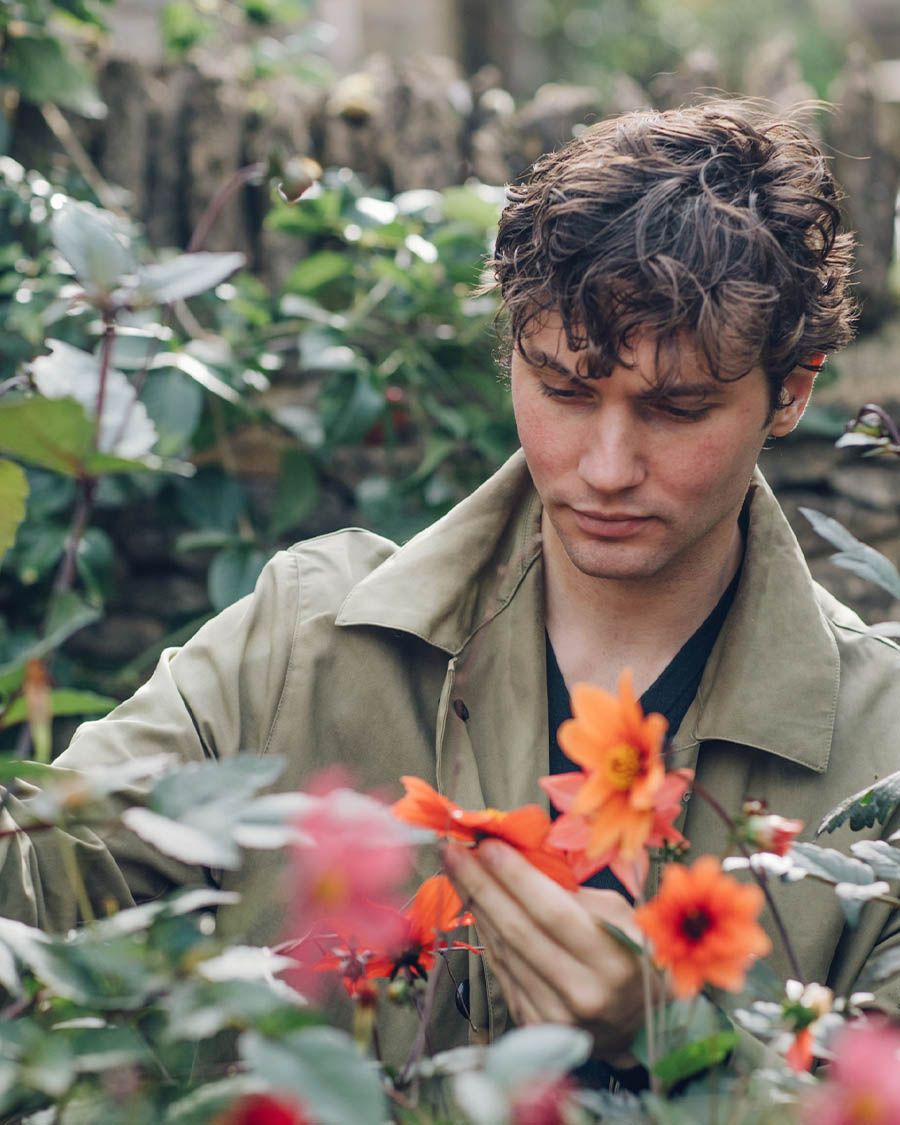
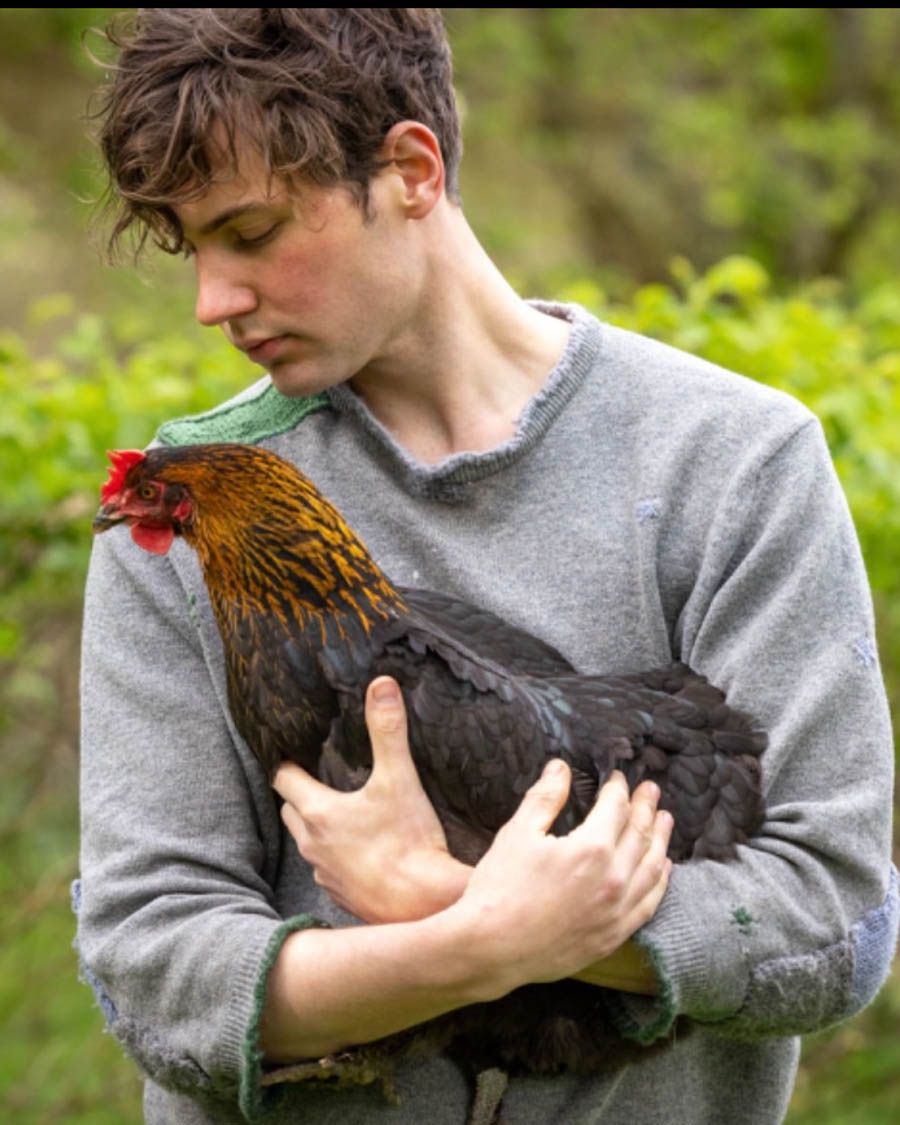
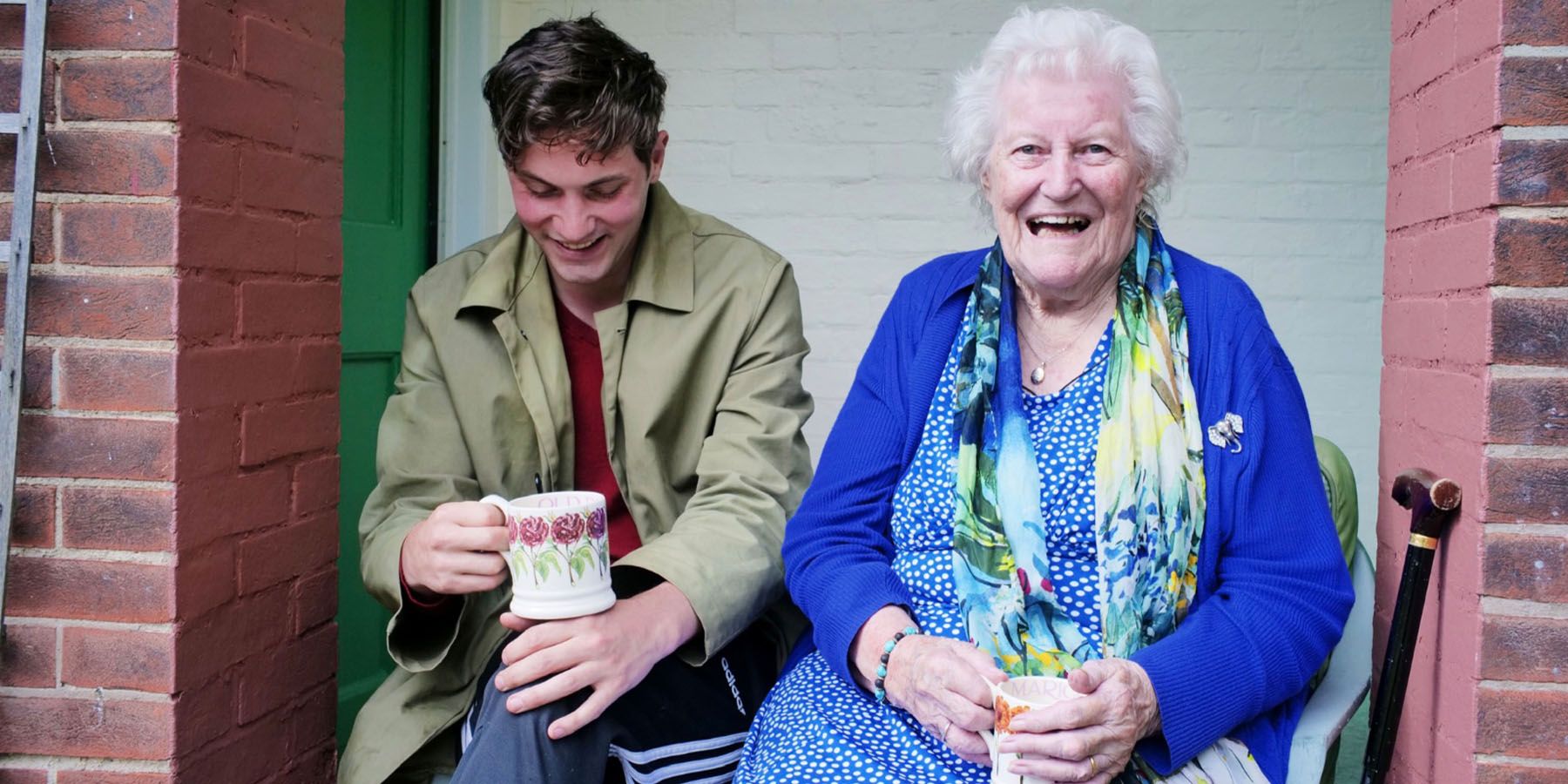
Top: Arthur in the garden. Photography credit: Create Academy. Arthur with a copper black marran. Photography credit. Jonathan Buckley
Bottom: Arthur with his feathery friends (top) and with his 'last dear old hen', his beloved Grandmar Sheila. Photography credit. Toby Amies.
During Covid you returned home to Hucknall to care for your Nannar, Min who in her nineties was struggling with dementia and you felt the strong pull to care for her yourself. Tell us about this urge to care for those close to you, those in need and of course your hens.
I think I’m realising that my little family being literally around the corner from each other is not a usual thing but when you are little you think all families are like yours. You know how families make such a big thing out of Christmas, well we have never really done that because we’d have always seen one another all year so such things were never turned into the big drama that they often are. Me and my brother Lyndon would see our grandparents all the time. I worry I’ve sugar-coated the experience of caring in my book. The care industry in the Uk is shamefully undervalued and not funded properly nor is care seen as a profession and it needs to be to get more of the right sort of people working with the vulnerable. Those working as carers the home ones are so up against it, I couldn’t do that job it’s very demanding and hugely stressful, the visits are timed, under an hour to get someone frail up, medicated, dressed, washed and fed, bed stripped, there’s no care in care is a very apt phase because the care industry has been pushed to its brink.
I started to notice Min was going downhill: I’d find her with an unwashed face and dirty fingernails looking quite blank. Then I’d be somewhere flower arranging (the other side of the country often) and get constant calls from carers asking this and that so I’d be stressed with worry all the time. I witnessed the ‘caring’ one day and it was so rushed, so impersonal, done in silence. I just thought 'fuck this, I can wash my Nan in the morning and make sure she’s getting a proper breakfast, (I’d watch Delia smiths tutorials via YouTube). I don’t want strangers here not even calling her by her actual name (ironically she was often called chicken which would really grate me) so I just started doing it. By the time lockdown began I was pretty much there all the time anyway. I’ve not shared the experience to get any pats on the back but it’s not something as a society we give enough thought to. We are all going to get old - there’s no get-out-jail-free card coming, 'don’t get old don’t get ill' that’s the mantra for today! It doesn’t buy health but money does help, it annoys me that that factor again often isn’t openly mentioned. Of course, if you are a millionaire you can get the best private care, private doctors, quicker appointments, and second opinions. The agony is the same but it can all be much more soothed. If my Nan had become violent like some do or confused and frightened then I wouldn’t have been able to do it. I had to admit defeat when the mini-strokes began to get worse and worse, she couldn’t stand so I couldn’t get her upstairs.
How do you unwind? What’s your favourite thing to do when not ‘working’? Do you regularly feel the need to be in nature?
I do this (being in nature) of course in the morning and before I go to bed every day but if I feel crap then I go and clean my teeth and this can be at any time of the day or night for a good few minutes as there’s something about having a clean feeling mouth that stops me feeling (and this is a Ruby Wax quote) 'like I’ve been a dishwasher for a year'!
I wouldn’t say travelling by train is unwinding, if you have to change at Birmingham new street station you’ll agree with that statement but if I’m lucky I’ll get a window seat and I like spotting allotment plots from here. I love allotments, they are at ease being openly free and messier than gardens are. There is a shagginess, they can get away with so I feel more at home here amongst purple sprouting, collapsing sheds, hen coops and compost heaps than I do standing on a formal lawn surrounded by roses. My favourite thing to be doing is sitting with my hens and picking flowers for bud vases, not arranging but plonking them into vases singularly on mass. It is so easy and they look happy, keeping their individuality not being crammed with others as they often are in an arrangement. I like pottering, uninterrupted and knowing I don’t have to be anywhere or have to worry about what I look like, that’s bliss for me still being in muddy jeans at 8pm on a summer's evening.
I spend as much time as I can with Shelia, my Grandmar or as I term her 'my last dear old hen'.
The hype that gardening is going to transform your mental health is a slogan that for me doesn’t hold water because last year especially I was crying in the garden more than enjoying it, not for a specific reason but I think your mind hits the age of 30 and everything moves a gear mixing with trauma. You can’t control your emotions unless medicated and when I’m medicated I’m so numb that everything feels like I’m not alive at all so I’m learning. Any good doctors reading this give me a call, god help those around me. I try and just get on and enjoy the days when I feel alive and take full advantage of them. When my mind is good, I have to write and catch that energy when it flies in and when it does arrive it’s fabulous!
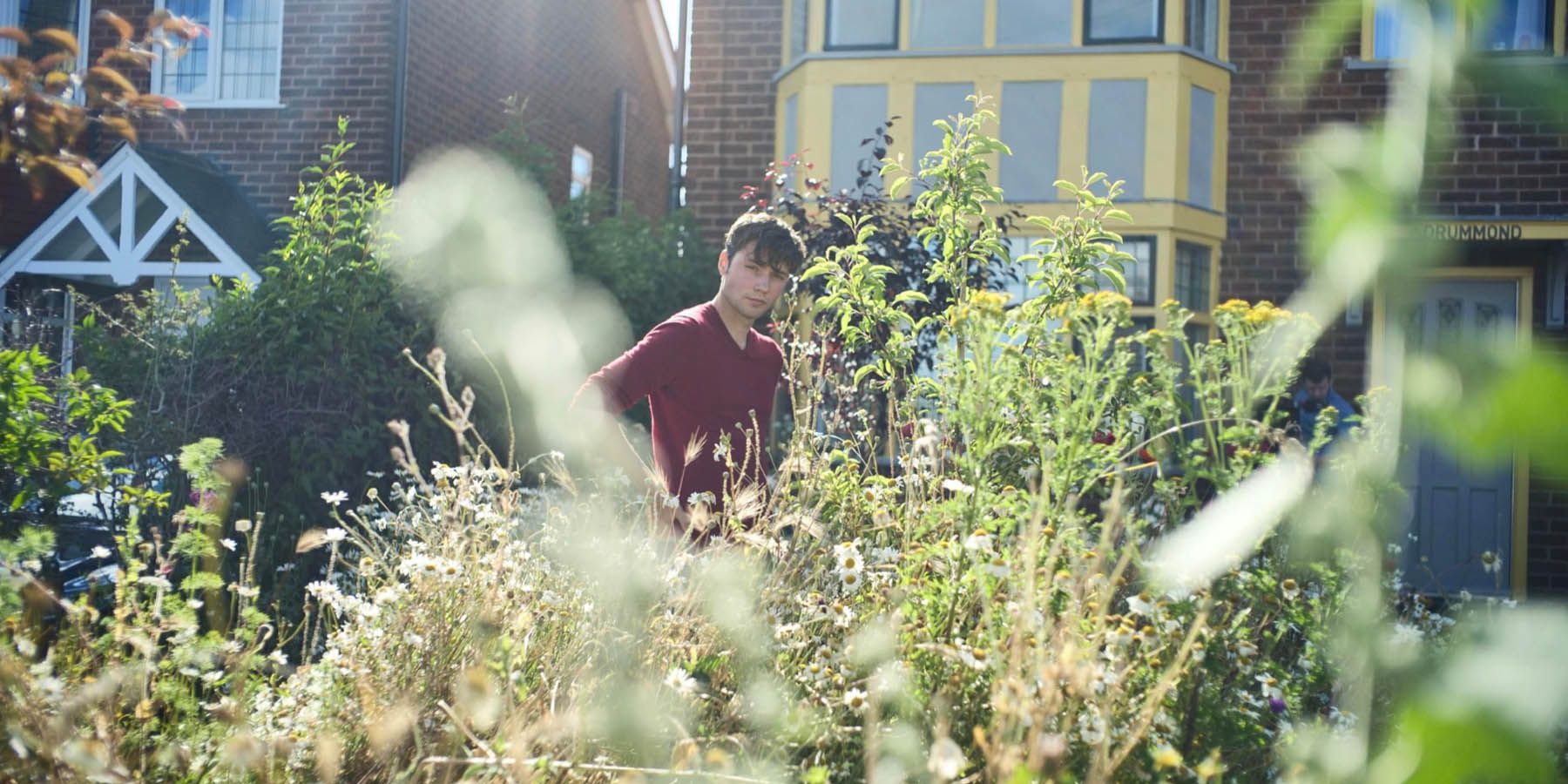
Photo credit: Toby Amies. See the Nowness film by Toby Amies
“I like pottering, uninterrupted and knowing I don’t have to be anywhere or have to worry about what I look like, that’s bliss for me still being in muddy jeans at 8pm on a summers evening”
Committed to conservation and animal rights, particularly regarding your beloved hens’ welfare and the industry that doesn’t appear to support this. What should we all be doing, to help protect and improve the lives of chickens in the UK?
Eat less chicken I think is the honest answer it’s as simple as that or if you can rear your own but that’s fantasy talk for most households. The majority of the chickens on earth aren’t having a good time. Factory farming doesn’t produce good meat or eggs, tasteless unsurprisingly and the supposed nutritional value doesn’t exist and the amount of soya and corn-based feed all these caged-up souls require all makes it really damaging to the planet. A lot of environmental issues go back to factory farming. We have seen bird flu rip through farms this past year with horrifying culls, the way they deal with outbreaks in these huge warehouses in America is termed as ‘ventilation shutdown’ - it’s harrowing.
If we saw chicken and meat in general as a luxury and a sacrifice then it would be better for the planet and I think farmers and our diet alike. Less meat eating would reduce factory farming, what I want to see is a value put on the farmers we have left that are supporting our rare and heritage breeds (for these breeds to survive we do though have to still eat them!) and council policies that encourage individuals and communities to engage in growing our own food. We need more allotments, we need more city farms and more funding for schools to have market gardens but these are rarely on the main agenda of sustainability. I don’t want to see a great rush into eating lab-made meat although I think in the case of chicken nuggets those made here would save a lot of sad chickens at large. A lot of people expect meat to be cheap now. Compassion in world farming is trying to get all major supermarkets to agree to the better chicken commitment where they switch to slower-growing breeds that are not in pain due to them growing so fast. So far Waitrose and Marks and Spencer are the only major players to have signed up.
What do you love most about the month of June and what would an ideal June garden border consist of?
June can be hard because all of the spring bulbs are properly over and pots will have just been freshly planted up with dahlias and annuals so they are finding their feet, the alliums are in their stride though and the bees love those but the garden can feel a little in between shows. The first sweet peas if they were winter sown will be coming out, it is always worth giving room to sweet peas in the ground rather than in pots if you can afford to as they do much better in the ground because it’s cooler for their roots. I actually don’t love June because it’s not as abundant in terms of harvest as the months before it and the months to come are! It’s good for a big garden as you h areas of fleeting but wonderful June perennials like oriental poppies, peonies, bearded iris and lupins.
What’s next for Arthur Parkinson?
I have to make Arthur Parkinson somehow work a hell of a lot more. I do love writing though and drawing and photography I have to remember I am really bloody lucky. I have a few ideas for future books, pelicans, flamingos, and possibly sponge cake are all on the written horizon! My fourth book Planting a Paradise is out on October 12th which I hope does the first The Flower Yard book justice.
Lets Play Favourites - Arthur Parkinson
Flower – Honeysuckle
Artist – Beatrix Potter
Interior Designer – James Mackie
Scent / Fragrance – Sweet Peas
Travel destination – I really want to go to the Scilly Isles, Kelly Hoppen has recommended the beaches there!
Place in England – Chatsworth, Derbyshire
Book (current read or all-time favourite) – "I’m not as well as I thought" by Ruby Wax
Podcast – Kathy Burke where there’s a will there’s a wake.
TV series – Jam and Jerusalem
Film – Far From The Madding Crowd - 1967 version
Wellness ritual – anything that shifts the blackness! Love a bath.
Colour – orange
Wardrobe essentials – good socks
Skincare fave – good lip balm
Season – early autumn
Food - a very fruity trifle
Muse – Joanna Lumley
Guaranteed laugh – Absolutely Fabulous
Time of day – mid afternoon
Day of the week – any that feel good
Quote – ‘help him in adverted commas do what he wanted to do’
For more follow @arthurparkinson_

